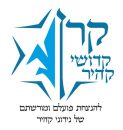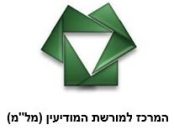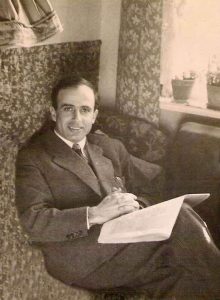Meir Max Bineth
Home » The Cairo Martyrs » Meir Max Bineth
Meir Max Bineth was born on June 27, 1917, in Szombathely, Hungary, to Amalie (née Obermayer) and Joseph (Jozsi) Bineth.
Meir was born during the First World War, while his father was serving in the Austro-Hungarian Army. After his father was released from the army, the family moved back to Mannheim, Germany, which was the father’s workplace. In 1924, the family moved to Cologne, where Meir and his sister could attend Jewish high school. To this aim their father took a new job there. Meir attended ‘Yavneh’ (‘Jawne’) Jewish high school and was a member of the ‘Ezra’ Jewish youth movement. He played an alto flute as well as the violin.
Meir and his parents escaped Nazi Germany. In May 1935, they arrived in British-ruled Palestine. His elder and only sister, Ruth, who arrived in Palestine the previous year, arranged for their certificates.
In order to support himself and his parents, Meir worked as a dockworker in Tel Aviv port. In addition, he worked for various employers and conducted delicate mechanical work. Meir also volunteered in the “Magen David Adom” first-aid organization.
During the 1936–1939 Arab revolt , in British-ruled Palestine, Meir stayed in Kfar Hasidim, where he completed a military training course run by the Haganah as well as vocational training programs in various branches of agriculture.
From 1942 through the following four years, Meir worked on behalf of the local, Jewish “Solel Boneh” construction and civil engineering company, for the Anglo-Iranian Oil Company in Abadan, Iran. He was seconded there as an instrument mechanic, and filled the position of job supervisor in the instrument control department.
During his stay in Abadan, Meir voluntarily trained and tutored local Jewish youth and prepared them for Aliyah: immigrating to Eretz Yisrael in British-ruled Palestine. He also studied Persian and completed his high-school education in England by correspondence.
After the Second World War, in 1946, Meir was trained in radio and electrical engineering in Liverpool, England. He tutored local Jewish youth also there. Meir established a local choir there as well and led it. He inspired some of the youth members he trained, who later made Aliyah.
In 1947, Meir joined the “Gidonim”, the wireless radio communication unit of the Mossad LeAliyah Bet , which was the Jewish Zionist paramilitary institution for immigration. As such, Meir operated mainly in Italy, at the Magenta transition camp, where mainly Jewish Holocaust survivors stayed before their illegal immigration to mandatory Palestine . Meir purchased and developed radio devices and communication equipment for the immigrants’ ships and installed them before they sailed to Palestine.
Meir was recruited by the Zionist military forces on 1 February, 1948. It was during the 1948 war, and a few months before the State of Israel was established, in May, when the forces officially became the IDF.
Meir first operated as a communication officer and later joined IDF intelligence. In August 1949, he participated in a secret mission in Iraq and Iran, where he worked to enable local Jews to make Aliyah. For these actions, he later stood trial in absentia in Iraq (after he managed to escape to Israel) and was sentenced to death. During his Cairo trial, the Iraqi government requested Meir’s extradition in order to execute this sentence.
In 1950 Meir married Jane Davidov. After their marriage, Meir and Jane traveled to North Wales, where Meir completed his studies at The Wireless College – Colwyn Bay . They returned to Israel before the birth of their daughter, Michal-Michelle, in July 1951. It was then, the idea of a clandestine operation in Egypt was conceived.
In December 1951, Meir traveled to Germany in order to prepare for the covert mission in Egypt, where he operated undercover, as Max Bineth – a Mannheim-born German businessman, who lived in Bonn, the capital of West Germany.
Bineth formed ties with export companies in Germany, that were looking to export their products to Arab countries, mainly Egypt and Lebanon. Bineth then became the German firms’ representative.
Going back to Germany was emotionally challenging and Meir paid an emotional price for it. At a later stage, his wife and daughter joined him in Germany.
Bineth was sent to Egypt on April 12, 1952. He participated in an information gathering mission, for which he went undercover as the representative of various German firms, primarily Von–Laufenberg – a company manufacturing artificial limbs for the wounded and crippled. Artificial limbs were essential products in post-1948-war Egypt. The Von-Laufenberg firm was most suitable to establish contact with the first President of the Republic of Egypt, Major General Mohamed Naguib. Wounded three times on the battlefield, before he was appointed president, Naguib was head of the Egyptian association of rehabilitation of the disabled. During his mission in Egypt, Bineth established government and military contacts at the highest level. Bineth also established ties among the local community of German scientists and engineers. It comprised Germans who, after the Second World War, found refuge in Egypt and became professionally established there.
To begin with, it was decided Bineth would be a “lone wolf” in Egypt and would not contact any of the other Israeli agents nor the local Zionist underground group members in Alexandria and Cairo (“The net”).
However, it seems that Meir’s handlers decided to use him for administrative purposes. He was asked to deliver money for the two Zionist underground cells through their liaison officer, Marcelle Ninio. In addition, Meir met Samuel Azar in Alexandria and Mayer Zafran in Cairo. Although they could not see Meir’s face, they did know he came from Israel. This posed a great risk in case the net would be exposed, which it was.
When Bineth arrived in Israel for a visit, on August 5, 1952, he complained to the relevant persons about several aspects related to his mission, including his cover but mainly about the communication he had to keep with the local members of the Jewish spy ring. He conditioned his return to fixing what went wrong. Only after they promised him to do so, did Meir agree to carry on with his mission.
In November, after a short stay in Germany, Meir started his way back to Egypt. At this point, he was also appointed consultant engineer on behalf of the Ford car company’s German branch in Egypt. This was a position of importance and him being appointed was a significant milestone.
In January 1953, Meir arrived in Egypt for the second time. His wife and daughter joined him in Cairo before the end of that year, which increased the reliability of his undercover story. Bineth deepened his relations with Egyptian government circles as well as with the local German community. He met the Egyptian president, Major General Mohamed Naguib. In September 1953, the ‘Rhein-Sieg-Magazin’- a German magazine, published a long article about German-Egyptian cooperation. A picture of Naguib and Bineth, together, in the President’s chamber, appeared in the center of the article.
Bineth provided important and reliable information indeed to Israeli intelligence. Due to the failing information security, the Egyptians reached also Meir subsequent to the fall of the spy network. Marcelle Ninio was the last local network member who was captured by Egyptian intelligence. Under enduring, unbearable torture, which was beyond the capacity of any human to suffer, she described Bineth’s car. It was later found; Egyptian intelligence had already received information about Bineth from IDF officer Avri Elad. Elad was originally sent to operate the Alexandria cell but betrayed its members, as well as their colleagues in Cairo, and informed the Egyptian intelligence about them.
After he was caught, Meir suffered under severe torture during a five-month interrogation in an Egyptian jail. On December 21, 1954, one day before he was scheduled to testify, Meir committed suicide. It was the second day of Hanukah Jewish holiday. Meir did not want to give the Egyptians the satisfaction of publicly executing him. The lawyer who was hired to run his defense reported that Meir was put on death row already ten days earlier.
After he took his own life in Egyptian prison, Meir’s coffin was smuggled to Italy. In February 1959 he was secretly buried, again, in a clandestine ceremony in the military cemetery on Mount Herzl in Jerusalem.
Some thirty years later, in September 1987, Israeli Minister of Defense, Yitzhak Rabin, handed Meir’s widow, Jane, with Meir’s Lieutenant Colonel ranks and said: “It was an unusual, remarkable, high-risk mission that Max Bineth was running. Unfortunately, and to our great regret, he fell on duty, while on his watch. In the course of time, certain affairs got mixed and Meir was linked, by mistake, to another affair (referring to “The Lavon Affair”, also known as “the Nasty Business”), one he had nothing whatsoever to do with. Meir went on a separate security-intelligence assignment, which had nothing to do with the other events that took place that year. He fell while serving the State of Israel and for the State of Israel. Meir’s service improved Israel’s security capabilities greatly and they have become far, far better, than they would have been, had Meir not performed so well on his mission”.
Nathan Rahav, who knew Bineth when he was a trainee, before he was sent on that intelligence posting, gave an interview on a TV show (“Haim She’kaele”), which told the stories of the heroes of the affair. Broadcasted in December 1989, Nathan said on that show: “Our parents, who founded the state and built it, told us and educated us that achieving independence was no easy journey. It’s a journey full of ordeal and obstacles. They said one could not reach the summit of a mountain, if one did not leave several gravestones on the slopes of that mountain. Max Bineth, was one of the secret warriors. He gave his life away in prison, in an enemy state. One of the gravestones on the Israeli independence mountain, has his name engraved.”
Culture-loving, Meir was a polymath, a well-read, creative man. As such, he also read about the events he witnessed and wrote about his own experiences. Passionate about music, classical music was the soundtrack of Meir’s entire life. A people’s person and a humanist, Meir loved people, his people and his country.
For further details about Lt. Colonel Meir Max Bineth please see – www.meirmaxbineth.org and the Facebook page under his name.
Additional links: About Meir Max Bineth by Aliza Greenbaum on Street Names (Hebrew) website.




